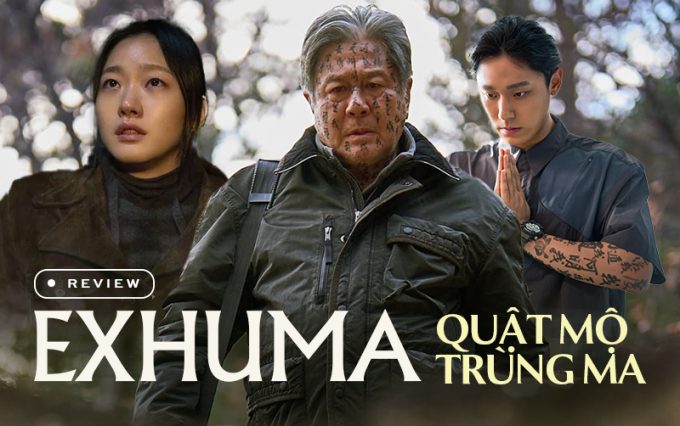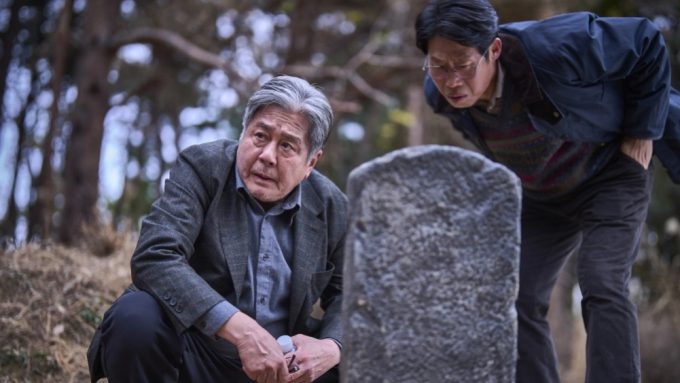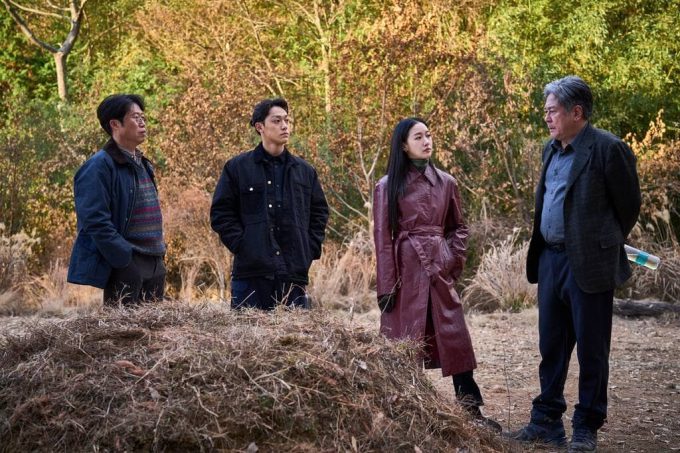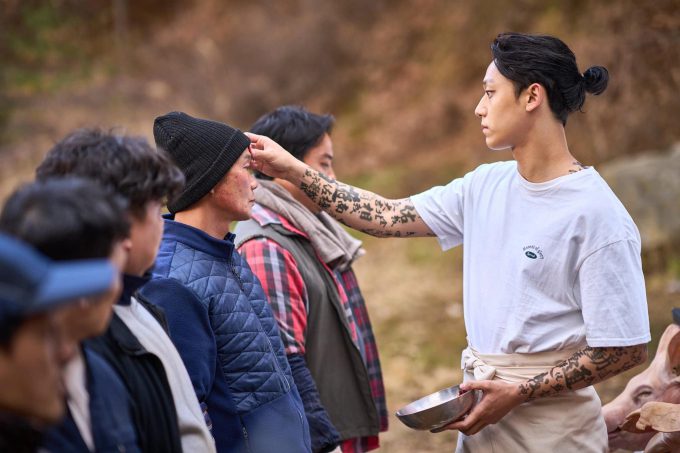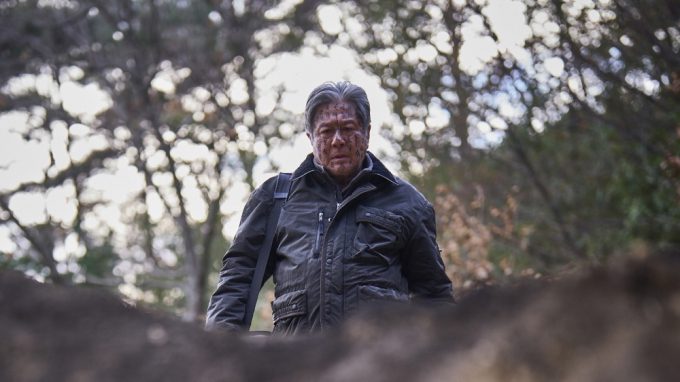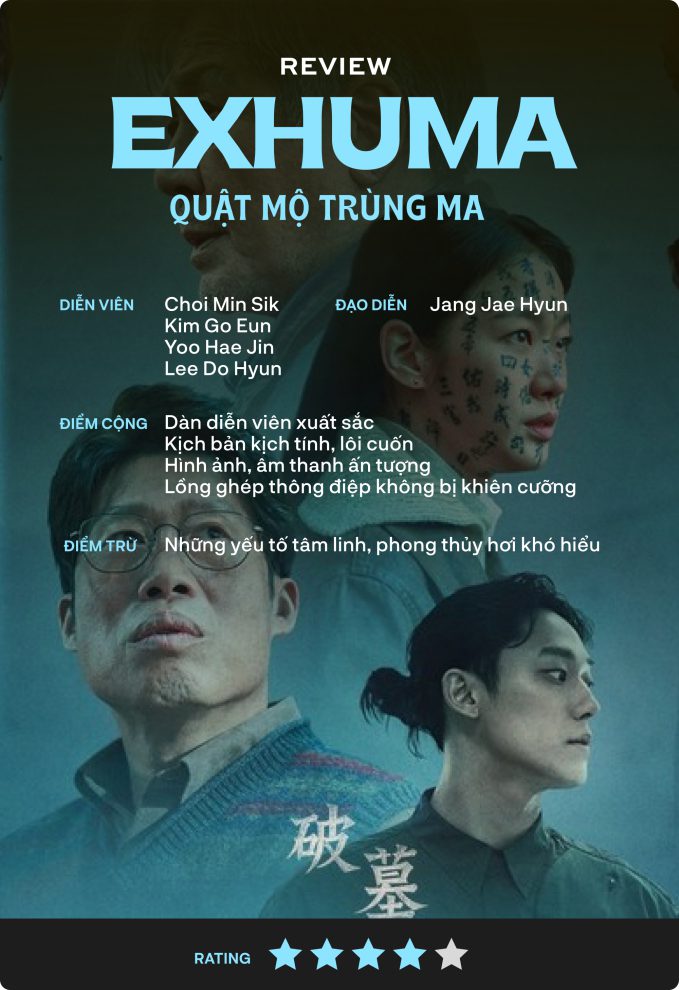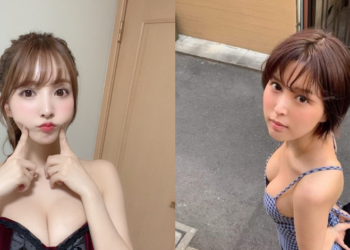After several days of anticipation, Vietnamese audiences can finally enjoy the new movie Exhuma – The Haunted Tomb, which has successfully set numerous records in Vietnam. It’s no exaggeration to say that this film is a blockbuster that has dominated the box office for three consecutive weeks (as of March 14). Exhuma offers viewers an immersive experience that keeps them engaged throughout its runtime. Despite running for over two hours, the film is packed with gripping scenes and unsettling spiritual elements that often leave viewers breathless.
A Gripping Narrative, Engaging the Audience’s Senses
Exhuma follows the journey of Hwa Rim (Kim Go Eun) and Bong Gil (Lee Do Hyun), two South Korean detectives sent to investigate a mysterious case in LA. Their client is the grandson of a wealthy family. Though it appears to be a straightforward investigation, the young boy has already experienced a traumatic event regarding the death of his grandfather, where even the local authorities have been unable to locate the body. Consequently, the family has sought the expertise of these South Korean detectives to resolve the mystery of the missing body.
Upon entering the hospital, Hwa Rim encounters a young patient who seems to have a connection to the case. She quickly realizes that the situation stems from a crime scene within a family compound. She immediately seeks the assistance of priest Kim Sang Duk (Choi Min Sik) and mortician Ko Young Geun (Yoo Hae Jin) to solve the case of the missing body. In their first encounter with the body, Kim expresses his reluctance to participate in the investigation due to the unusual circumstances surrounding the family’s history, which includes numerous secrets and dark pasts. After much persuasion and overcoming his fears, he reluctantly agrees to assist the detectives.
While the plot is straightforward, Exhuma is divided into several segments that create a cinematic experience akin to a gripping thriller. If you have previously watched works by director Jang Jae Hyun, especially Svaha: The Sixth Finger, you might find the narrative style of Exhuma familiar. The film intertwines various elements such as spirituality, folklore, and philosophical beliefs, leading the audience to absorb a substantial amount of information, despite the main story revolving around the excavation of a grave.
Although the film addresses legal matters, the cinematography captures various Asian cultural nuances and Korean film characteristics. This is the first time audiences have seen such a vivid portrayal of the entire cast and the supernatural elements involved. The use of striking imagery, vibrant colors, and atmospheric sounds creates an overwhelming sensory experience for viewers, making it hard to look away.
Exhuma has indeed delivered an extraordinary experience to viewers that exceeds expectations. If you are looking for a horror film filled with high-stakes jumpscares, you might be slightly disappointed. Exhuma dives deeper into themes of spirituality and the supernatural, with less emphasis on cheap scares but more on profound storytelling and twisty plot twists that keep audiences on the edge of their seats. Elements of folklore such as shamanism, funeral rites, and ancestral worship are intricately woven into the narrative, potentially resonating with audiences familiar with South Asian cultural beliefs, particularly those from Vietnam.
A Blend of Spiritual and Cultural Themes
It is important to note that Exhuma does not shy away from addressing complex subjects like shamanism and the cultural practices that may be unfamiliar to many. The film effectively highlights the intricacies of these beliefs while maintaining a narrative that is accessible to viewers. However, it must also be said that some viewers may find the depth of cultural references overwhelming and may struggle to absorb all the information presented. This aspect has sparked some debate, as not all viewers feel entirely satisfied with the film’s intricate themes.
Moreover, the film does not shy away from its historical context, including references to the long-standing conflicts that have shaped current societal views. From the very first scene, we see Hwa Rim grappling with the complexities of being mistaken for a Japanese national, while she assertively claims her Korean identity. The film tactfully incorporates historical themes, particularly regarding the recent Korean conflict, into the narrative without overtly forcing messages. This aspect of the storytelling is commendable, as it highlights the importance of understanding cultural identities and the historical backgrounds that influence them.
The Impressive Performance of the Cast
The film’s success can also be attributed to its outstanding cast, particularly Choi Min Sik, who continues to be a powerhouse in the South Korean film industry. His performance in Exhuma leaves a lasting impression, effectively embodying the character’s depth and complexity. Kim Go Eun, making her debut in a detective role, holds her own alongside the seasoned actors, showcasing her range as a performer.
Overall, Exhuma stands out as a remarkable film that effectively combines various cultural elements while offering a thrilling cinematic experience. Its success at the box office is a testament to the audience’s appreciation for both the horror genre and the deeper themes that the film delves into.
Rating: 4/5
It is no coincidence that Exhuma has emerged as a major success, receiving high praise at the box office in South Korea, as well as being the highest-grossing horror film in the country’s history. The film’s straightforward narrative is complemented by detailed character development and a harmonious blend of various thematic elements, including spirituality, folklore, historical context, and more, creating a unique cinematic experience that resonates with audiences.
Image Source: Hancinema


